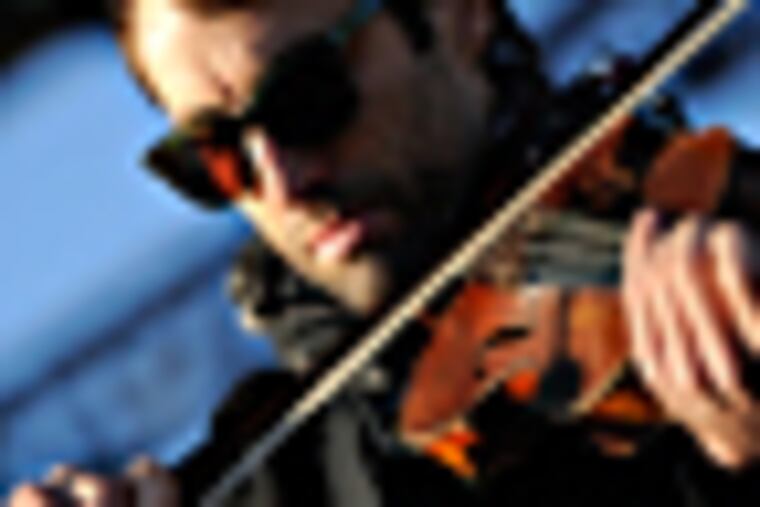Andrew Bird takes unpredictable turns in Union Transfer concert
Union Transfer boasts some of the best sight lines in the city, but even with the stage at Thursday’s Andrew Bird concert in full view, you might have been tempted to crane your neck to see where he was hiding his orchestra. Even when he was alone at the microphone — or rather, microphones — with only a violin in his hands, Bird used loop pedals to layer swooping solos on top of sprightly pizzicato, seamlessly integrating snatches of styles ranging from the Wild West to the Middle East. Bird recorded his new album, Break It Yourself, in a weekend-long jam session in a converted barn, with the same three-piece band that joined him on stage. The songs built slowly, in part out of necessity, since Bird needed time to record and embellish his intricate loops, which dove around each other like aquatic mammals or birds cartwheeling in an open sky. For “Desperation Breeds ...,” he built a gauzy mass of vocal harmonies, adding to his own vocal parts each time the musical figure swung around to its beginning, which faded into the background as the band steered the song into rockier seas. Additional instability was provided courtesy of a spinning speaker topped with what looked like a two-headed gramophone horn, making Bird’s violin and guitar echo and shudder.

Union Transfer boasts some of the best sight lines in the city, but even with the stage at Thursday's Andrew Bird concert in full view, you might have been tempted to crane your neck to see where he was hiding his orchestra. Even when he was alone at the microphone — or rather, microphones — with only a violin in his hands, Bird used loop pedals to layer swooping solos on top of sprightly pizzicato, seamlessly integrating snatches of styles ranging from the Wild West to the Middle East.
Bird recorded his new album, Break It Yourself, in a weekend-long jam session in a converted barn, with the same three-piece band that joined him on stage. The songs built slowly, in part out of necessity, since Bird needed time to record and embellish his intricate loops, which dove around each other like aquatic mammals or birds cartwheeling in an open sky. For "Desperation Breeds ...," he built a gauzy mass of vocal harmonies, adding to his own vocal parts each time the musical figure swung around to its beginning, which faded into the background as the band steered the song into rockier seas. Additional instability was provided courtesy of a spinning speaker topped with what looked like a two-headed gramophone horn, making Bird's violin and guitar echo and shudder.
Bird's onstage process roughly mirrors that of more recent arrival Merrill Garbus, who performs as Tune-Yards. But while Garbus builds towering, African-influenced polyrhythms, Bird expands along the horizon line, broadening his scope rather than setting each new element atop the last. Technically speaking, Bird's method is no less demanding — a single misplaced note could easily collapse the structure — but it feels like less of a high-wire act, mainly because his songs are less about locking into patterns than straying from them. "Orpheo Looks Back" began with Bird playing his violin like a ukulele, morphed into a Romany dance, and then gave way to his quavering, almost ghostly whistle.
Twice during the show, including for an encore cover of Townes Van Zandt's "If I Needed You," Bird switched off his electronics and gathered his band around a single microphone, as if they were performing on some old-time radio hour. Even without enhancement, the songs took unpredictable turns, as if Bird were not their master, only their keeper.